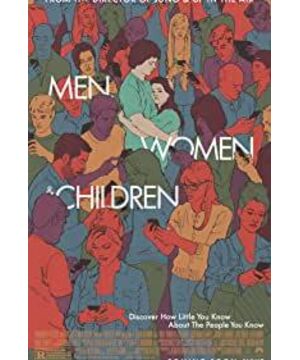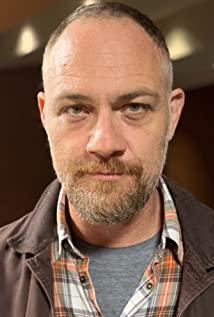Look at Baidu Encyclopedia's introduction that this movie is full of American colors. Indeed, football, open culture, 9/11...In fact, there is not much American color. Of course, most of the characteristics of American youth movies are indispensable. The performance of male protagonists in rugby, or the outstanding performance of a certain sport, and the appearance of female protagonists in rugby cheerleaders, but these two are also embodying American sports. Culture and dance culture are so cool and open.
In summary, the entire film is run through the Internet. The Internet has made human society more and more open and transparent. Whether it is browsing the web above everyone’s head or typing in the text next door, human society has become Closer and more open. But also because of the Internet, people have become alienated, whether it is the male protagonist 1 who plays online games or another male protagonist who often watches pornography and causes problems 2 or the father who browses pornographic websites and sex games on the Internet, or is in The Internet is looking for a lonely mother, or a female protagonist who suddenly posted pictures on the website to increase her popularity 1, or a female protagonist who evades their mother’s "protection" and looks for an unreal self on the Internet2. They are all escaping from real life. Staying away from your own family has led to infidelity, misunderstandings, and conflicts. Jason Reitman, a young talented director, uses this modern high-tech feature of the Internet to express the American open culture.
Among them, I clearly remember a scene of the two couples: the husband stroked his wife's shoulders, and said I love you behind his wife, and after a while, the wife also said I love you. I love you, this sentence in English is also sufficient to explain the open culture of the United States. It is also a manifestation of the open culture of the West. It seems to be a little unworkable in our country. As I grow up, I love you. Will not say it easily. Saying I love you to others at will is a relatively open culture in our country. This is exactly the difference between Eastern culture and Western culture.
And the obvious sexual culture in the film is also a kind of open culture in the United States, I will not elaborate.
Open culture is actually a hidden theme in the movie. Comparing the vastness of the universe with the insignificance of human beings is the obvious theme of this movie. From the beginning, I don’t know if it’s a silly Voyager. From going to space to the end of the whole film, the things to be described in the narration, as well as the transition of the earth and the universe in the middle, are talking about the vastness of the universe and the smallness of human beings. The things and things that we humans think are important are in the universe. From the space, they are just pale blue dots, so we don’t need to put some important things that we think are very important. This will only increase our burden, and then it will increase. The burden of the people around you, to be serious, has become a disaster.
Mother considers protecting her daughter a very important and important thing. Looking at her daughter's computer and mobile phone all the time, this in itself increases her burden, and then harms her daughter, causing her daughter's rebellion and the almost death of her daughter's friends. The son who played online games regarded his mother’s departure as a very important matter, and suddenly enlarged, ignored his father, did not play rugby, and played games desperately. The misunderstanding with his father became bigger and bigger, and he almost died... ...Allow me to use a high school essay topic to persuade humans to despise yourself, humans.
Let's talk about the film's name "Men, Women and Children". To put it bluntly, it is a human being. The reason why American films can influence the world is not only because of the powerful technology flow, but also because of the reasoning part that can alert human beings. This is an adaptation of a novel. The novel wants to talk about the unreliable emotional culture of the United States. In fact, this unreliable emotional culture is largely due to its open culture. In the end, the film is not about the United States, but about the United States. The matter of all mankind, I think this is also the sublimation part of the theme of the film adaptation of the novel. Only when you look down on yourself and value others can you maintain a strong emotion, love, family, and friendship.
View more about Men, Women & Children reviews











